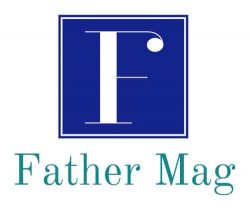Nomen est omen (a name is a sign/omen), or so says an old Latin proverb. In ancient times, people believed in omens and looked for them to find some meaning and reassurance in their often-chaotic lives. Nowadays, people believe less and less in omens, but parents still prefer to give their children names that have certain significance. Most recently, the trend has been shifting towards unique, aesthetic, or nature-themed choices.
Such is the case with Croatian parents, who dedicate a lot of attention to picking a good name for their babies. Before the 20th century, it was customary to name your offspring after grandparents/other family members or Christian saints. After that, international, unusual, and modern names became popular and remained in higher demand even today.

So, if you are planning to give your child a Croatian name, look no further than this list! Here you can choose between 50 great options, with some of them being more traditional and others rather modern. You will also be able to learn their meanings, which is extremely important to know when deciding a name for your child.
For a start, let’s take a look at Croatian girls’ names:

1. Dalija
Dalija is not only a girl’s name, but also a beautiful flower (dahlia). This plant has a special meaning: it symbolizes elegance, dignity, and loyalty. The features are transferred to the holder of the name Dalija, bestowing onto them the description of “the one that is elegant, dignified, and loyal.”
2. Lara
Considered short for Larisa, a name that originated from Laris, it described Old Roman household gods. Furthermore, some linguists speculate that Lara actually comes from the Greek word “laros”, which means “sweet.”
3. Lucija
From the Latin word “lux”, which translates to “light”, this name was often given to children that were born at the break of dawn. Another variant of this name is Luciana.
4. Ena
This short name is often deemed an abbreviation or a nickname rather than a full name. However, Ena can be selected as a full name on its own. One of the most recognizable examples was Ena Begović, the popular Croatian actress.
5. Ivana
Old languages, like Hebrew, quite frequently provide the basis for names. Ivana, for example, can be traced back to this Semitic language through the word “Yohanan”, which means “in the mercy of God”. It is one of the most popular Croatian names for both girls and boys, the male variant being Ivan.
6. Alka
Alka is considered to be a variant of the name Alija, a more prevalent form in Croatia. Some theories suggest that it was derived from the word “alka”, meaning “a link” or “ring”, relating to an equestrian competition held in the Croatian town of Sinj every first Sunday in August since 1715. Another possibility would be from Ancient Greek, where “alke (ἀλκὴ)”, means “brave, strong, might”. Either way, Alka is not only a short melodic name, but also imbued with deep connotations.
7. Anamarija
Thought to be the most common double name in the world, Anamarija is the result of combining the names Ana and Marija. It’s routinely found in other languages too, especially in the variant spelled in two words (Anne Marie, for example, in French).
8. Barbara
This name comes from the Greek word “barbar”, which means “foreign”. It was popularized as the name of the early-Christian saint and martyr, St. Barbara, the beautiful daughter of a wealthy pagan, kept in a tower for her protection.
9. Snježana
An exciting name originating from the Slavic word “snijeg”, meaning “snow”. Snježana is a Croatian version of the famous Snow White.
10. Božena
The name Božena is derived from the root word “božija”, which means “the one that belongs to the God”. Other variations include Božana and Božica.
11. Brigita
Brigita is a Croatian version of the German name Brigitte, originally Brigid, the Celtic goddess of light.
12. Mirna
MIrna, from the base word “mir,” which is present in many Slavic names. The word “mir” means “peace”, so this name literally means “the peaceful one.”
13. Irena
In Greek mythology, Irene was the goddess of peace. With that in mind, Irena has a similar meaning to the previous name, Mirna, as both mean “the one that is peaceful.”
14. Dora
The name Dora is of Greek origin, meaning “gift” or “present”. It can also be short for Teodora, Isidora, or Doroteja.
15. Edita
Edita is the Croatian version of the English name Edith, which comes from the Old-English Edguth. It can be interpreted as “treasure”, “fortune” or “health”.
16. Jadranka
It might sound a bit surprising, but this name is linked with the Adriatic Sea, on which the country has a long coast. Perhaps knowing that it has a more popular variant, in Adriana, will make it more apparent. This is an old name, often given to the children born in seaside towns.
17. Lidija
The name Lidija is of Greek-Hebrew descent, and can be translated as “born from God”. It can also mean “an inhabitant of Lydia”, an old kingdom that existed about 1000 years B.C.
18. Josipa
Josipa is a female version of the Biblical name Yosef, meaning “God gives”. Yosef was one of Jacob’s sons and later the name of an Israeli tribe. Going back to the Bible, you might remember that Virgin Mary’s husband was also called that.
19. Magdalena
Another Biblical name, Magdalena means “the one that comes from the town of Magdala” (a small settlement located by the Galilean lake). Marija Magdalena was thought to be a disciple and close follower of Jesus Christ.
20. Viktorija
This name evolved from the male name Viktor, which means “winner”. Victoria is a pretty popular name around the world.
21. Monika
The exact genesis of this name is unknown, but it is assumed that it originated from the Latin word “monachus”, which means “monk”. This name arrived in Croatia from Italy.
22. Martina
The female variant of the male name Martin, it was derived from the Roman surname Martinums. Initially, it was associated with the Roman god of war, Mars.
23. Valerija
A name that traces back its origins to Latin and the word “valerianus”, which means “the strong one”.
24. Silvija
Silvija is of Latin origin, and it was derived from Silvanus, the name of the Roman god of forests and trees.
25. Paulina
Another name of Latin origin, Paulina, is the female version of Paul. This was the name of one of the most famous Christian apostles, and so far, 6 Catholic Church Popes bore the name Paul.
Now, let’s take a look at the 25 most popular Croatian boys’ names:

1. Ivan
One of the most common names in Croatia and among the Christian population worldwide, Ivan can be translated as “God is gracious”.
2. Borna
The Persian empire stretched long and wide, so it’s no wonder there are plenty of names of Persian origin. Such is the case with Borna, meaning “youthful and young”. Other sources suggest that it could actually come from the Slavic word Boris, which means “to fight”.
3. Emil
“Aemilius“ was the surname of one affluent Roman family, and it meant “to compete”. Variants of this name include Emilije and Milijanko, as well as the female counterparts Emilija, Emilijana, and Milijana.
4. Jan
This short and simple name is a male counterpart of Jana, long thought to be derived from Jovana and Ana.
5. Bruno
Bruno is the Latinized version of the German name Brun. Its root can be traced to the word “braun”, “brown” in modern English, referring to brown hair and eyes.
6. Domagoj
The old Croatian name Domagoj seems to have gained popularity because of a certain duke of the Duchy of Croatia, who lived somewhere around the 9th century. It translates as “the one that grows his home”.
7. Krešimir
Krešimir is a purely Croatian name, and is believed to be derived from Kristian/Christian. Like many other Slavic names, it has “mir” (peace) in its structure.
8. Marin
The Latin word “marinus” has become over the years Marin, meaning “of the sea”. St Marin is protector of the country San Marino.
9. Dominik
Dominik, from Latin, particularly the word “dominus”, which means “lord”, “master” or “owner”. This name is prevalent in many Catholic countries, including Croatia.
10. Mislav
This name was created from the Slavic verb “misliti”, meaning “to think”. Hence, the interpretation of this name “the one who thinks”.
11. Martin
Just like the name Martina, Martin comes from the Roman surname Martinus, and is associated with Mars, the god of war.
12. Renato
Renato has a Latin meaning: “reborn”, “resurrected”, “renascent”, or “born again”. It was often given to children born around Easter, and there is a female version of this name, Renata.
13. Vjekoslav
Created by combining two Slavic words: “vijek”, which means “century” or “life”, and “lava” which means “glory” (quite common as root for Slavic names). The female version of this name is Vjekoslava.
14. Sanjin
This name was shaped from the Slavic word “sanjati”, which means “to dream”, and it represents people who are daydreamers. The female variant is Sanja.
15. Roko
Roko follows in a long line of names stemming from Latin, “rochus” meaning “a tall man”. You will find it means “little rock” in Spanish and French.
16. Tomislav
Tomislav is a name of Aramaic origins. Their word “teomo” is the basis for Tomislav, and it signifies “a twin” or “Gemini” in astrology. Greeks took this name first and started using it because it was similar to their word (Te’oma), which means “miracle maker”.
17. Vedran
Meaning “clear” or “cloudless”, this name is taken from the adjective “vedar”. It symbolizes a happy and bright person, and its female version is Vedrana.
18. Zvonimir
Zvonimir is a name created by merging two Slavic words, “zvoni” – which means “ringing” or “bell sound”, and “mir” – “peace”. The name could be translated as “ringing bells of peace”.
19. Zdravko
This name originated from the Slavic word “zdrav” which means “healthy”. Pre-Christian Slavic words were often given to children in order to assign them specific attributes, such as health and happiness.
20. Željko
A male version of the name Željka, Željko was given as a name to the long-awaited children. It’s derived from the word “želja”, meaning “a desire” or “a wish”.
21. Jakob
Jakob is an Old Hebrew name that means “heel.” According to the Bible, Jakob gripped his twin brother’s heel while they were still in the womb, which is how he acquired his name.
22. Hugo
The name Hugo comes from the Old German word “hugu”, which can have different connotation depending on context, like “to think”, “mind”, “meaning” etc. A general translation would be “someone who thinks”.
23. Maks
Short form of Maksim, Maks is another name of Latin ancestry, derived from the word “maximus”, meaning “the greatest, the biggest one”. In Croatia, this name became popular only after 2010.
24. Mihael
It is the name of the Archangel Michael, who was the first to defeat Lucifer. Mihael is a Biblical name of Hebrew origin, meaning “who is like God?”. The question is rhetorical, as the answer would be “No one”.
25. Fran
Franjo, Francisko, Frančesko, and other similar variants can be shortened to Fran. They all can be tracked down as coming from the name of one German tribe: Franks, or “free people”.

The Croatian language has many beautiful personal names. Some of them were inspired by Biblical personalities and saints, others were taken from Latin, Greek, and Germanic words, while a few are purely Slavic. No matter which one you choose, they all have lovely meanings that will undoubtedly suit your newborn child.


